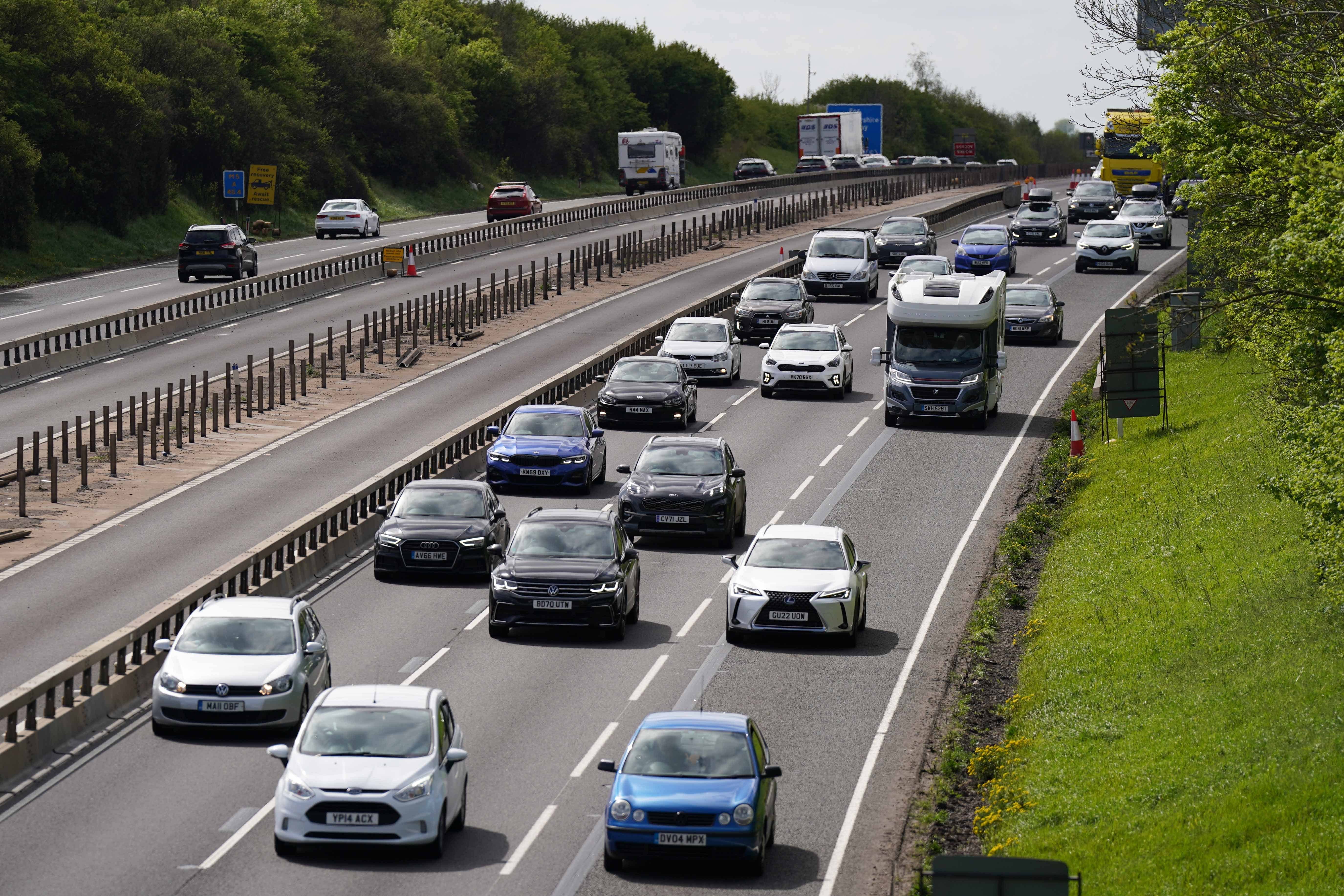Delays on major roads up 12% in a year to hit record level
Journeys on the strategic road network were delayed by an average of 10.6 seconds per vehicle per mile in the 12 months to the end of March.

Your support helps us to tell the story
From reproductive rights to climate change to Big Tech, The Independent is on the ground when the story is developing. Whether it's investigating the financials of Elon Musk's pro-Trump PAC or producing our latest documentary, 'The A Word', which shines a light on the American women fighting for reproductive rights, we know how important it is to parse out the facts from the messaging.
At such a critical moment in US history, we need reporters on the ground. Your donation allows us to keep sending journalists to speak to both sides of the story.
The Independent is trusted by Americans across the entire political spectrum. And unlike many other quality news outlets, we choose not to lock Americans out of our reporting and analysis with paywalls. We believe quality journalism should be available to everyone, paid for by those who can afford it.
Your support makes all the difference.Delays on England’s motorways and major A roads have reached record levels, new figures show.
Journeys on the strategic road network (SRN) were delayed by an average of 10.6 seconds per vehicle per mile (spvpm) in the 12 months to the end of March, according to Department for Transport data.
That is the longest in records dating to 2015 and is up from 9.5 spvpm in 2022/23, which was the same amount as the year to the end of February 2020, just before coronavirus travel restrictions began.
The figures are based on average delays compared with free-flow figures across all 24 hours in a day, so do not reflect the impact of congestion at peak periods.
In 2023, the major road with the longest delays was the A2270 near Eastbourne, East Sussex, at 179.3 spvpm.
The M6 Toll road in the Midlands, which costs £9.70 for a car completing the full route, had the shortest average delay at 2.7 spvpm.
RAC senior policy officer Rod Dennis said: “It’s concerning to see annual delays on motorways and major A-roads appear to have hit an all-time high, but this is perhaps a further sign of just how important vehicles are to people’s lives.
“There could be a number of reasons for the increase, including higher traffic volumes – which are well on their way to returning to pre-Covid levels – and the impact of roadworks, including the rolling programme of adding new refuge areas to smart motorways.
“Delays are bad for drivers and bad for the economy.”
DfT figures show the average speed on the SRN fell by 1.7% from 57.9 mph in the year to the end of March 2022 to 56.9 mph during the following 12 months.
In the year to the end of February 2020 the figure was 58.0 mph.
Separate statistics show road traffic levels in Britain in the year to the end of March increased by 2.1% over the previous 12 months but remained 1.8% below pre-pandemic levels.
A spokesperson for National Highways, which is responsible for the SRN, said: “We know delays are frustrating, but a number of factors contribute to slower-moving traffic.
“The make-up of vehicles on the road is changing, with more HGVs and larger vehicles together with less cars. This brings average speeds down.
“Roadworks are only in place where it is absolutely necessary. Our programme of improvements will result in long-term benefits for motorists – shorter and more reliable journeys as well as safer and smoother roads.”